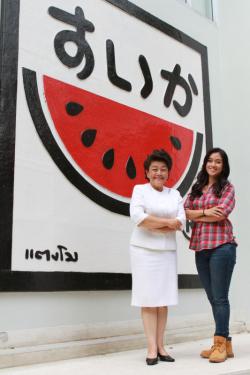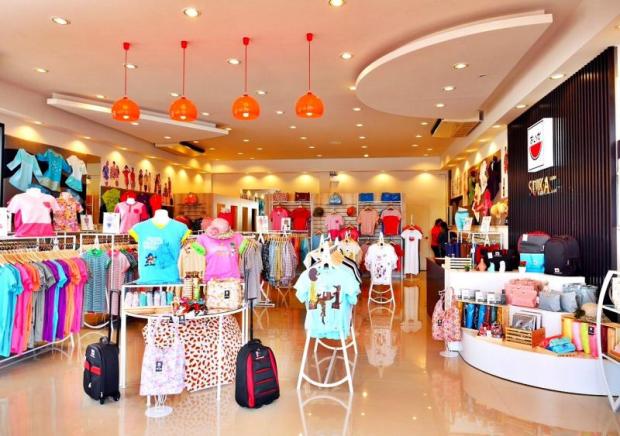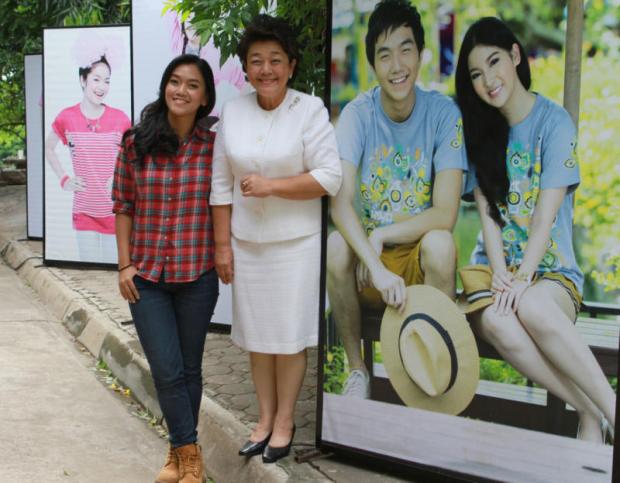The company plans to open a 2,000-square-metre outlet in front of the factory on Phutthamonthon road in November, aiming to welcome around 2,000 people a day.
Currently, Tangmo products are available at eight shops at venues including Platinum Mall, Siam and Bobae market.
In addition, they are available at 70 PTT stations, with the number set to rise to 100 branches next year.
Although Ms Adisara has made several key changes since entering the Tangmo business, she has retained her mother’s distribution channel.
For instance, while many consumers buy via modern trade channels and department stores, Tangmo products are sold via traditional channels through more than 2,000 local distributors nationwide.
Ms Adisara is quite familiar with the upcountry lifestyle as most of the 700 employees at the factory are from the provinces.
“I want my daughter to learn and understand different ways of life. The garment business relies heavily on workers, most of whom come from rural areas,” Mrs Amara says, referring to the strategy to allow her daughter to travel to her nanny’s hometown in an upcountry area during school breaks.
With this approach, Ms Adisara gets on well with provincial people.
Her father, Adisorn, continues to devote himself to upcountry communities with his “one rai-100,000 baht” education project, a scheme that teaches farmers how to grow crops at lower costs while earning up to 100,000 baht from their plot of land.
Ms Adisara says although she is young, she gets along well with older people with years of experience in the factory.
“Our company is very family-like. We don’t use words like boss or sir or madam, we call each other sister, auntie or uncle instead,” she says.
Ms Adisara is currently in charge of marketing, product design, training and store concepts.


